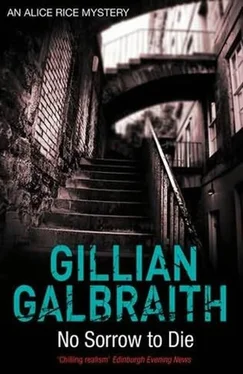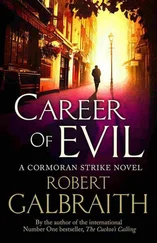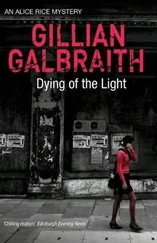As efficient as ever, within less than fifteen minutes she had showered, dressed and put her face on, but instead of leaving the bathroom and going into the kitchen in search of breakfast, she sat down on the lavatory seat and waited, listening for the tell-tale noises made by her sister as she exited the flat on her way to church. Soon the characteristic tuneless hum which invariably accompanied Pippa’s removal of her waterproof from the coat-hook started up, interrupted by a thick ‘Bye bye, Heather’ spoken through the remains of the last piece of toast. Finally, a loud bang signalled that the front door had been shut.
In the peace and quiet that followed, Heather Brodie looked in the fridge. Seeing only goat’s milk, she rejected the idea of cereal in favour of stewed apple with cream, a treat, if sprinkled generously with brown sugar. But once the bowl was in front of her, looking exactly as she had imagined it would, she found that she hadn’t the appetite even to taste it and put down her spoon. Then, remembering with affection their mother’s thrift, she carefully placed the bowl back on the fridge shelf, together with a twist of paper on which she had written ‘untouched’.
The taxi driver, a bumptious individual sporting dark glasses against the grey, sunless northern sky, seemed determined to engage her in conversation. Though his overtures were met with monosyllabic replies, he continued pestering her relentlessly until, eventually, she responded. Talking to him would be less of an effort than not doing so, she thought. If she was lucky he would do all the work anyway. So, when he said in his matey Liverpool accent, ‘You’re going to St Leonard’s Street are you? You work there then?’
She replied, ‘No – no, I don’t work there.’
‘Reporting a crime at the police station are you?’
‘Yes.’
‘Theft, is it theft then? I’ve been burglarised myself, you know. I know just how it feels, them in your house and everything. Like a rape, sort of. First time it happened we were living in Portobello, and the next time it happened it was where I live now, Silverknowes. Know what I think? I think they ought to confiscate all of them thieves’ possessions. That’d teach ’em to take other people’s stuff, wouldn’t it?’
‘Yes, it would,’ she replied earnestly.
‘What they take of yours then?’
She racked her brain trying to think what to say, then a ready-made list forced itself into her consciousness: ‘Em… a wallet, my husband’s wallet, a computer, my jewellery case…’
‘Your jewellery case?’ he interrupted, sounding appalled on her behalf, ‘was there much in it, then, by way of jewellery?’
‘A necklace… a ring, a brooch or two, sentimental value…’ she began, wishing that she had never weakened and entered this ludicrous conversation. Then inspiration came to her and she asked, ‘And you? What did they take from you – in the first robbery, I mean – and in the second, of course.’
By the time the cab drew up outside the police station, the man was still busy listing his stolen possessions, occasionally adjusting their details, reminding himself that the music centre taken was a Sanyo, not a Panasonic, and that the CD collection nicked from Portobello, no, from Silverknowes, had belonged, not to his daughter, but to his wife. Stepping out onto the wet pavement, she gave the cabby a very generous tip, finding herself unexpectedly grateful for his incessant animated chatter, an endless stream which had kept at bay her own thoughts, her own demons.
When she told the man at the reception desk that she had come to see DCI Bell, the old fellow nodded and asked her in a bored tone what her visit was in connection with. For a second, she was stumped, unable to answer, and then she pulled herself together. ‘To confess…’ she said, marvelling at the words as she spoke them, almost overawed by their implication. Saying them out loud to another person for the first time, to a stranger, made them real in a way that, up to that moment, they had not been. Safely inside her own head, they meant nothing, like a daydream of some dreadful revenge or a song unsung. The receptionist looked almost affronted by her answer and she heard him mutter down the phone, ‘Yes… a lady here wants to see DCI Bell, says she’s come to confess something. No, I don’t know what… course not… no, I didn’t like to ask her.’

The only windows in the interview room were snibbed tight shut, and the smell of cleaning fluid in the place was overpowering. On top of its scent, some kind of floral air-freshener had recently been sprayed in the space, strong enough to take the breath away and burn the back of the throat. Her immediate instinct was to turn round and walk straight out of the room again, but, instead, as instructed, she took her place at the table.
Opposite her, and already seated, she recognised the female Sergeant who had interviewed her in the flat. She seemed to have aged in the last few days, with dark circles under her eyes, and appeared distracted.
When the male Inspector entered the room he looked straight through her, as if she was some lower form of life not needing to be accorded the normal courtesies. He had a wide choice of seats, and ostentatiously chose the one furthest away from her. There he slumped over his mug of coffee, staring into the middle distance, choosing not to meet her gaze. He looked unkempt, slightly sordid, she thought, as if he belonged in the cells rather than on the floor above them. Once he was seated, their DCI, the stout, officious woman, put down the telephone.
‘Well,’ Elaine Bell said, crossing her arms and sounding stern, ‘I understand that you’ve a confession to make.’
‘Yes,’ Heather Brodie answered, sitting up straight, making herself as upright as possible, readying herself for the confrontation, the series of challenges, she was anticipating. To her relief her voice came across as strong and confident, as if it belonged to someone unintimidated by the setting or the situation.
‘On you go then,’ the DCI continued, as if encouraging her in something innocuous like a theatre audition or the opening speech in a school debate. Conscious that they were all now staring expectantly at her, Heather Brodie cleared her throat and said, ‘I’ve come to confess to the murder of my husband, Gavin. I killed him…’ Then she stopped abruptly, hoping that she had now said enough, enough for their limited purposes at any rate. What more could they need?
‘How?’ the DCI asked, leaning towards her, ‘how exactly did you do it?’
She hesitated before answering, blinking as she gathered her thoughts. ‘First of all I drugged him, gave him an overdose of his own drugs. Then I… I cut his throat using our kitchen knife.’ As she said it, she made a horizontal slitting motion with her right hand as if she was cutting her own throat.
‘But why?’ Eric Manson demanded. ‘Why did you do that? Cut his throat, if you’d already poisoned him?’ The room was now in complete silence, the DCI’s gaze fixed on her interviewee.
‘Because… I lost my nerve. After I’d given them to him, I wasn’t sure that the drugs would do the trick – kill him, I mean.’
‘Why didn’t you give him more?’
‘He was comatose by then, he couldn’t drink. Anyway, to tell you the truth, I didn’t think of it.’
‘What did you give him in the first place?’ Eric Manson persisted.
‘Em… the Nortriptyline and the Oramorph, a mixture of the two, but…’ she said, now sounding slightly impatient, ‘I’m not sure why you need to know all of this, though. It’s like twenty questions, or something. I’ve already told you that I’m confessing to this. I’ll plead guilty at my trial – to Gavin’s murder, I mean. You needn’t worry.’
Читать дальше













